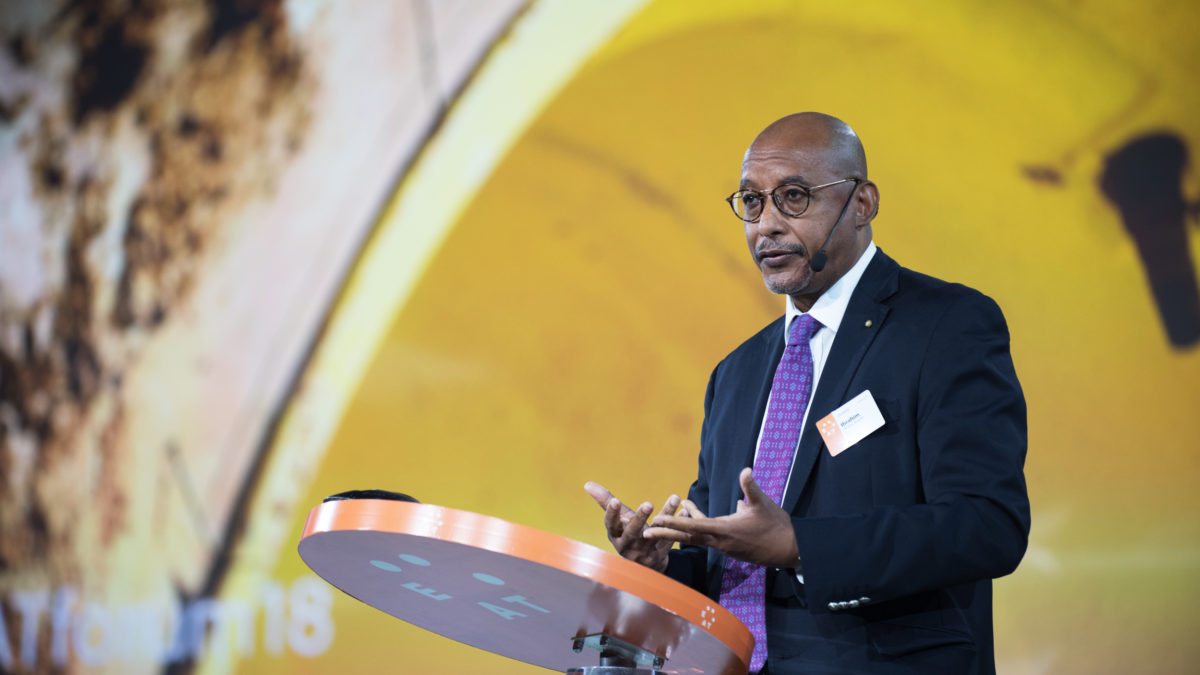When Dr. Mayaki talks he talks with conviction and determination. The former Prime Minister of Niger argues that Africa can and should produce more of its own food. Most of the food we import is not healthy, he says. Frameworks such as the Comprehensive Africa Agriculture Development Programme has helped 41 African Union Member States develop national agricultural plans and change the narrative from talking about “food security” to “food and nutrition security”. But Mayaki warns that no change will happen without the engagement of small-scale farmers, echoing IFAD’s president Gilbert Houngbo. Change, he says, must be multisectoral, inclusive and just. Without justice to land and health there is no dignity, and without dignity there will be no will for change.
Ibrahim Assane Mayaki was Prime Minister of Niger from 1997 – 2000. Since 2009, Dr. Mayakai has been the CEO of the New Partnership for Africa’s Development (NEPAD) Agency. He was appointed by UN Secretary General Ban Ki-moon to serve as a member of the Lead Group of the Scaling Up Nutrition (SUN) Movement and was also appointed as a member of the Independent Team of Advisors (ITA) at the United Nations Economic and Social Council (ECOSOC) Bureau.
